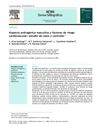 23 citations,
April 2010 in “Actas Dermo-Sifiliográficas”
23 citations,
April 2010 in “Actas Dermo-Sifiliográficas” Men with early-onset baldness have a higher chance of heart disease and clogged arteries.
9 citations,
January 2018 in “Indian Journal of Endocrinology and Metabolism” Androgenetic alopecia is significantly linked to metabolic syndrome.
 January 2015 in “IP Indian journal of clinical and experimental dermatology”
January 2015 in “IP Indian journal of clinical and experimental dermatology” The study concluded that women with female pattern hair loss had higher waist circumference, triglyceride levels, lower HDL, and blood glucose levels compared to those without hair loss.
 April 2023 in “Journal of Cosmetic Dermatology”
April 2023 in “Journal of Cosmetic Dermatology” There's no strong link between Alopecia Areata, a hair loss condition, and fatty liver, but more research is needed.
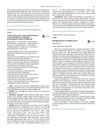 2 citations,
May 2017 in “Maturitas”
2 citations,
May 2017 in “Maturitas” Women with premature ovarian insufficiency have a worse cardiovascular risk profile than premenopausal women.
 September 2010 in “European Urology Supplements”
September 2010 in “European Urology Supplements” Opioid use may lower PSA levels, suggesting a possible role in prostate cancer control; PSA testing is useful for detecting prostate cancer; serum triglycerides are not linked to prostate cancer risk; and higher urethral PSA levels may be associated with local hormone activity.
 September 2010 in “European Urology Supplements”
September 2010 in “European Urology Supplements” The document does not confirm if radical prostatectomy is the best treatment for locally advanced prostate cancer.
March 2023 in “Journal of Drugs in Dermatology” Hormonal therapies, especially antiandrogens, can help manage Hidradenitis Suppurativa.
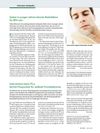
Men with early balding may have a higher risk of prostate issues, and surgery for prostate cancer has a slight survival benefit over radiation.
 30 citations,
October 2014 in “Journal of The American Academy of Dermatology”
30 citations,
October 2014 in “Journal of The American Academy of Dermatology” A team approach is crucial for managing PCOS, with dermatologists playing a key role.
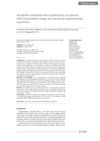 16 citations,
January 2017 in “Archives of Medical Science”
16 citations,
January 2017 in “Archives of Medical Science” Sorafenib after liver surgery may increase survival for some liver cancer patients.
 April 2017 in “Journal of Investigative Dermatology”
April 2017 in “Journal of Investigative Dermatology” The PON1 192R gene variant is linked to a higher risk of psoriasis and heart disease in Western Mexico.
 April 2010 in “The Journal of Urology”
April 2010 in “The Journal of Urology” Hair loss, prostate size, and urinary issues are related due to androgen effects.
 6 citations,
November 2019 in “The application of clinical genetics”
6 citations,
November 2019 in “The application of clinical genetics” The study found that a specific genetic variation in the TNFα gene is significantly linked to Alopecia Areata in the Jordanian Arab population.
 September 2016 in “International Journal of Dermatology”
September 2016 in “International Journal of Dermatology” The document covers various dermatological conditions and their studies.
11 citations,
June 2015 in “Scientific Reports” The mtDNA N haplogroup is linked to a higher risk of late-onset lupus and specific symptoms in Han Chinese women.
 January 2014 in “Journal of the Egyptian Women's Dermatologic Society (Print)”
January 2014 in “Journal of the Egyptian Women's Dermatologic Society (Print)” Women with acne after adolescence are more likely to have PCOS and should be checked for it.
 January 2025 in “Nutrients”
January 2025 in “Nutrients” Genetic factors and diet significantly increase the risk of male pattern baldness.
 October 2023 in “Research Square (Research Square)”
October 2023 in “Research Square (Research Square)” Oxidative stress is linked to mild patchy alopecia areata.
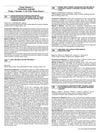 September 2010 in “European Urology Supplements”
September 2010 in “European Urology Supplements” PSA testing is a reliable method for detecting prostate cancer, and opioids may lower PSA levels, but triglycerides don't affect prostate cancer risk.
 September 2010 in “European Urology Supplements”
September 2010 in “European Urology Supplements” Higher urethral PSA levels after prostate removal surgery may be linked to more hair loss and higher PSA levels post-surgery.
April 2005 in “Journal of Investigative Dermatology” Vitamin D helps protect skin, PSORS1 gene's risk interval for psoriasis is expanded, hair follicles can be generated from mouse cells, and interferon-γ may cause pigmented skin lesions.

Men with androgenetic alopecia may have a higher risk of metabolic syndrome.
 June 1996 in “Archives of Dermatology”
June 1996 in “Archives of Dermatology” Minoxidil, tretinoin, and finasteride may help hair regrowth in mild to moderate androgenetic alopecia.
 7 citations,
October 2019 in “Clinical, Cosmetic and Investigational Dermatology”
7 citations,
October 2019 in “Clinical, Cosmetic and Investigational Dermatology” Certain gene variations in the Vitamin D receptor may increase the risk of chronic hair loss.
 13 citations,
January 2015 in “International Journal of Trichology”
13 citations,
January 2015 in “International Journal of Trichology” Higher lead and cadmium, and lower zinc and iron levels in the blood might be linked to chronic hair loss in women.
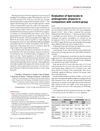 27 citations,
January 2009 in “Journal of The European Academy of Dermatology and Venereology”
27 citations,
January 2009 in “Journal of The European Academy of Dermatology and Venereology” Men with a certain type of hair loss (AGA) have higher bad cholesterol and lower good cholesterol levels, making them more likely to get heart disease.
 May 2007 in “The Journal of Urology”
May 2007 in “The Journal of Urology” Finasteride lowers PSA levels in men, certain factors increase testicular cancer risk, and current guidelines for penile cancer may lead to unnecessary surgeries.
 4 citations,
August 2021 in “Clinical and Experimental Reproductive Medicine”
4 citations,
August 2021 in “Clinical and Experimental Reproductive Medicine” The 2018 guideline for PCOS suggests new diagnostic criteria and treatments, but recognizes the need for more research.
 August 2015 in “Evidence Based Women Health Journal (Online)”
August 2015 in “Evidence Based Women Health Journal (Online)” Inositol was more effective than Metformin in treating symptoms of PCOS in women.


























